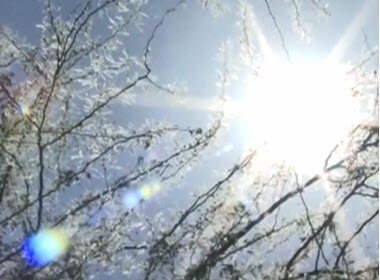Q&A: Summer Heat and Seniors with Dr. Sanjay Dass

Hot weather is dangerous, and seniors are particularly sensitive to its threat. Heat stroke and heat exhaustion are a real problem for those over the age of 65. In fact, a University of Chicago Medical Center study found that 40 percent of heat-related fatalities in the U.S. were among those over 65.
Dr. Sanjay Dass, a geriatrician with CHI St. Vincent Primary Care - Little Rock - Chenal, offers tips for keeping anyone over the age of 65 safe this summer.
There are several reasons why seniors are more succeptable to the heat. Their ability to notice changes in their body temperature decreases with age. Many of them also have underlying health conditions that make them less able to adapt to heat. Furthermore, many medicines they take contribute to dehydration.
Conditions that can affect seniors
Heat stroke and heat exhaustion are the two biggest problems seniors face in the summer. The symptoms of these include:
-
A core body temperature above 105 degrees Fahrenheit
-
Fainting
-
Throbbing headache
-
Dizziness and light-headedness
-
Lack of sweating despite the heat
-
Red, hot, and dry skin
-
Muscle weakness or cramps
-
Nausea and vomiting
-
Rapid heartbeat, which may be either strong or weak
-
Rapid, shallow breathing
-
Behavioral changes such as confusion, disorientation, or staggering
-
Seizures
Tips to prevent heat exhaustion or heat stroke
Drink Plenty of Liquids
Dehydration is the root of many heat related health problems. Drink plenty of water or juice, even if you're not thirsty. But remember to avoid alcoholic or caffeinated drinks, as they can actually contribute to dehydration.
Wear Appropriate Clothes
An old Swedish saying says, "There's no such thing as bad weather, only bad clothes." When it's hot out, wear light-colored, lightweight, loose-fitting clothes and a wide-brimmed hat.
Stay Indoors During Mid-day Hours
During periods of extreme heat, the best time to run errands or be outdoors is before 10am or after 6pm, when the temperature tends to be cooler.
Take it Easy
Avoid exercise and strenuous activity, particularly outdoors, when it's very hot out.
Watch the Heat Index
When there's a lot of moisture in their air (high humidity), the body's ability to cool itself through sweating is impaired. The heat index factors humidity and temperature to approximate how the how the weather really feels. The current heat index can be found on all popular weather websites, and is also usually announced on local TV and radio weather reports during periods of warm weather.
Seek Air-conditioned Environments
Seniors whose houses aren't air-conditioned should consider finding an air-conditioned place to spend time during extreme heat. The mall, library or movie theater are all popular options. During heat waves, many cities also set up "cooling centers," air-conditioned public places, for seniors and other vulnerable populations. Seniors without convenient access to any air-conditioned place might consider a cool bath or shower.
Know the Warning Signs of Heat-related Illness
Dizziness, nausea, headache, rapid heartbeat, chest pain, fainting and breathing problems are all warning signs that help should be sought immediately.
Always check on your elderly loved ones and neighbors throughout the summer. And take them to an emergency room if they display signs of a heat stroke or heat exhaustion. For more information regarding heat exhaustion or heat stroke, talk to your primary care doctor. If you don't have a primary care doctor, let us help you find one!
